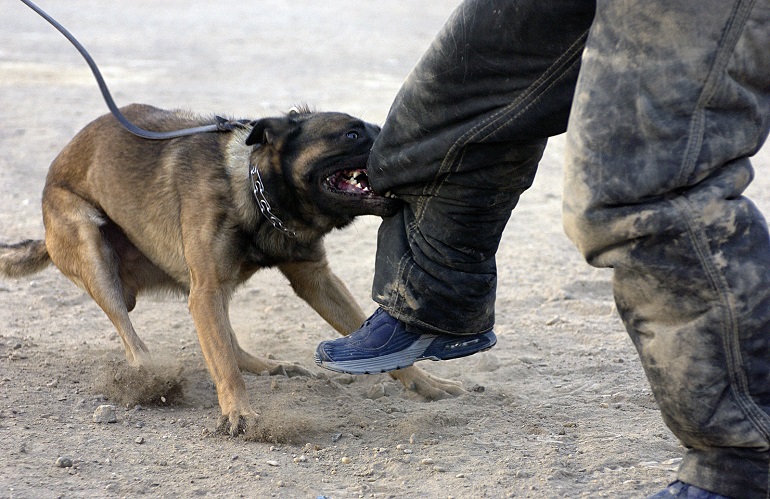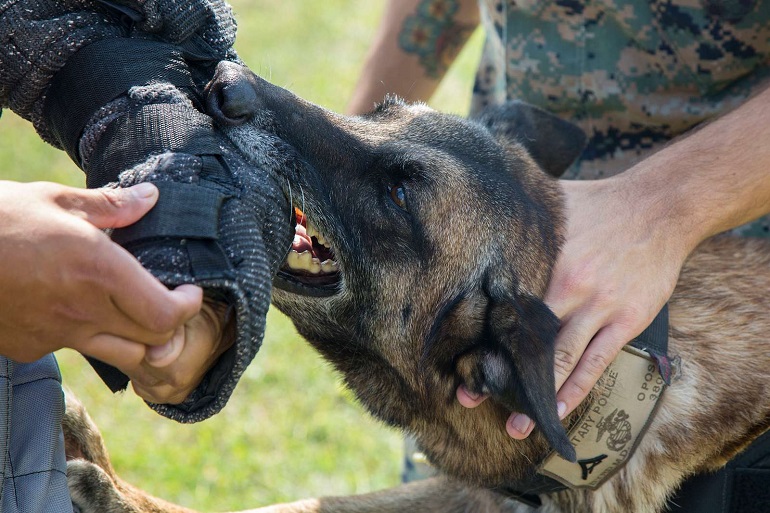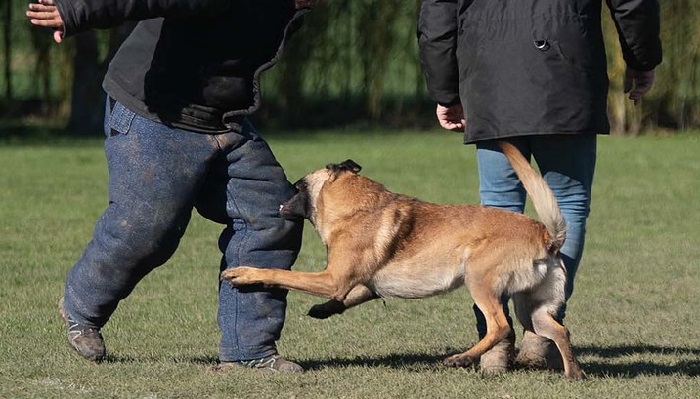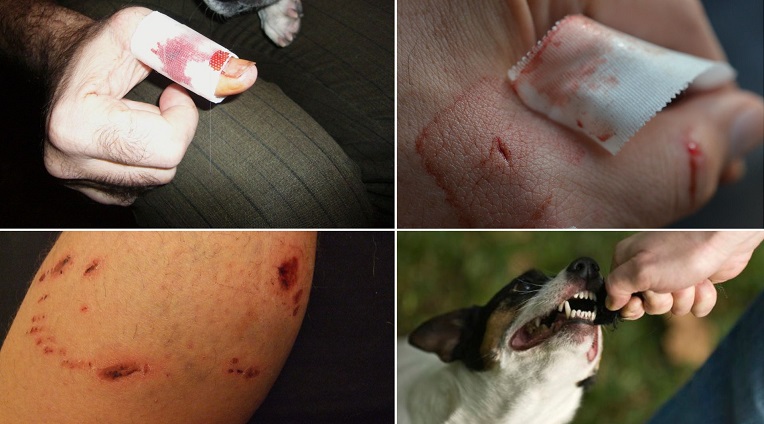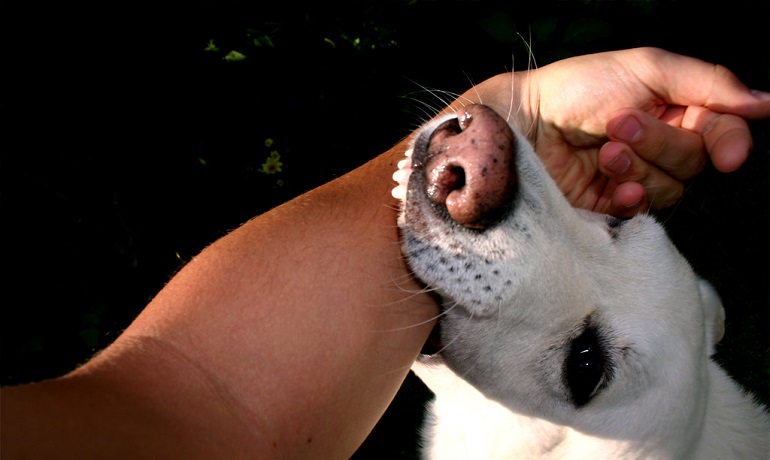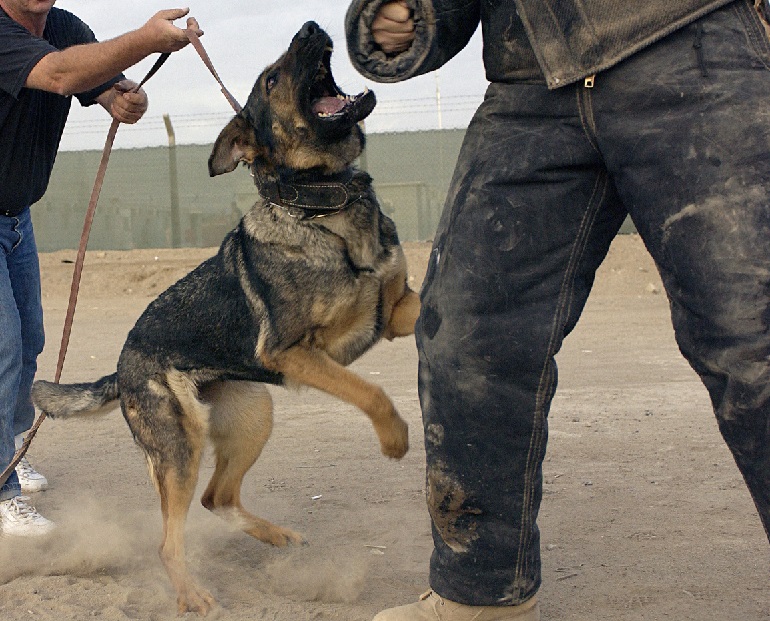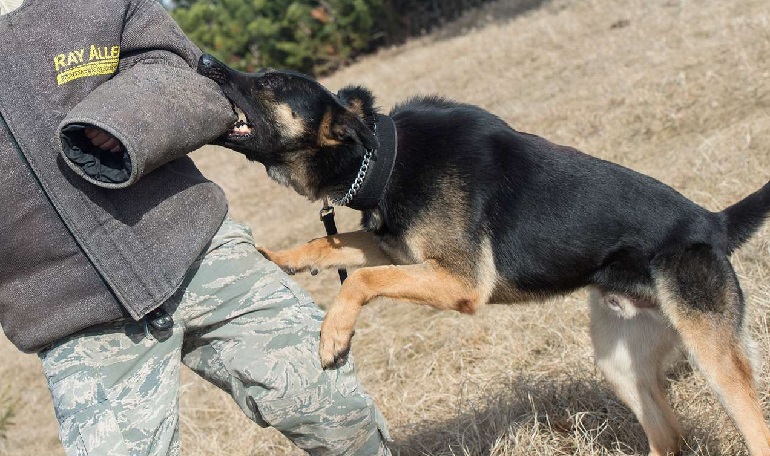Dog bites present a complex legal landscape, varying drastically state by state. Understanding your local laws is crucial for both protecting yourself and your pet. This guide navigates the intricacies of dog bite statutes across the US, explaining the differences between “one-bite” rules and strict liability. We’ll explore owner responsibilities, victim rights, and practical steps to prevent incidents, empowering you to ensure both canine and human safety within your community. Whether you’re a dog owner, a concerned citizen, or a bite victim, this information is vital for navigating the legal maze surrounding dog bites.
Dogs are fantastic animals. However, it’s important to remember that they are still animals. Dogs can bite. That is a simple and high-level fact of life, irrespective of reasoning and circumstance.
I have always lived in a house with at least one dog. Luckily, I have never been maliciously bitten by a dog. Of course, I don’t count the odd playful puppy nibbles. However, I do know people who have been.
As a dog owner, it is your responsibility to keep your dog under control. The dog owner is also responsible for learning and understanding the dog bite laws in their state.
Laws can differ from location to location, and even if your pup has always been a picture of good behavior, you can never be too careful.
This article will help to shed some light on the various dog bite laws to help you be better positioned should you suddenly find yourself dealing with a bad dog.
Dog Bite Law by State
The map below shows the dog bite law that applies in different states throughout the U.S.
What is Dog Bite Liability?
Dog bite liability refers to the onus of liability, which lies with dog owners in every single instance of a reported dog bite.
Dog bite liability is not a single law but a concept built upon three core overarching constructs that govern dog ownership and the question of liability arising from a dog bite.
Some degree of dog bite liability exists in all states, including the District of Columbia. The three fundamentals surrounding state dog bite laws are explained below.
- Dog Bite Statute: Dog bite statutes state that beyond no shadow of a doubt, all liability lies with the dog owner in the instance of a dog bite. This remains whether the owner was present and also whether the bite was malicious or accidental.
- One-bite Rule: The one-bite rule is a slightly more lenient stance that exists in certain states. As the name suggests, the one-bite rule exists to protect dog owner liability for the first time a dog bites. According to the one-bite rule, the dog owner is only liable once the dog’s dangerous propensities have been exhibited as a genuine recurring trait. As it currently stands, more states are moving away from the one-bite rule in favor of strict liability laws that hold dog owners accountable for any injuries caused by their dog, regardless of whether or not the dog has exhibited dangerous behavior in the past.
- Dog Owner’s Negligence: Another key aspect of liability for dog bites is the question of negligence. In some states, dog owners’ negligence is required in order for them to be liable following a dog bite. The owner’s negligence must prove that they failed in keeping their dog under control.
How Strict Is the Dog Bite Liability?
Strict liability is a legal terminology that covers several different concerns, one of which is a dog bite tort or dog bite statute.
A strict liability dog bite law is intended to be a law that places 100% of all financial liability as a result of dog bites on the owner. This is regardless of whether the animal in question is a dangerous dog or not.
However, strict liability is a complex subject that differed wildly across the US. There is no single overarching dog bite statute across the US. As a result, there are different dog bite statutes in effect in every state. Some take a hard and fast stance on dog bite injuries, while others carry one or more caveats.
Strict liability states that a bite does not have to come from a dangerous dog in order for the dog’s owner to be liable. A dog is considered the owner’s property, and as such, they are required to ensure their dog is kept under control at all times.
One of the most common exceptions to a dog bite statute is in an instance of trespass or otherwise illegally entering a location or premises.
Another question that is often posed when looking at strict liability is when physical injury is lacking; there is cause to prove owner negligence caused the dog to bite.
If the owner knew their dog’s vicious tendencies and did nothing to mitigate the chance of an attack, they may well be held liable under a different tort.
What Am I Liable for under a Dog Bite Statute?
Under most dog bite statutes, should a dog bite someone, you are liable for any number of resultant costs.
Even if your dog is not considered a dangerous animal or doesn’t cause bodily injury to the person, you remain liable under the strict liability laws in most states.
Four of the common costs that you are liable for as a dog’s owner are outlined below.
Property Damage: Should you or the owner of the location where the attack occurred have suffered damage to their property, whether public or private property, a claim could be made against the state law or dog bite statute.
Loss of Income: A dog bite is rarely just a matter of the bite itself. There can be a lasting impact that results directly from the bite. An inability to work or receive an income, even for just a short period of time, can be made part of any liability claim.
Medical Bills: Medical bills quickly rack up following a dog bite. Even if it was just as a result of the dog’s playfulness, any direct dog-caused medical costs can be made part of a dog bite case claim.
General Pain and Suffering: General pain and suffering is a broad term, even under a dog bite statute, that typically encompasses ongoing trauma suffered by an injured person following a dog bite incident.
For a dog owner, there is some good news. For many people, the majority of homeowner insurances – and many renter insurances – also offer a provision for dog bite liability.
However, it is also important to understand that while an insurance policy may cover dog bites, any resulting claim will result in either a higher premium or that particular clause being voided for any future dog bite incidents.
Are Doctors Required to Report Each Dog Bite in Every State?
Doctors are required to report dog bites on humans in the majority of US states. However, the requirement to report dog bites does not necessarily mean these are done in a timely fashion.
There are many instances where the eventual report that is filed and eventually actioned occurs after a significant period of time has elapsed.
Interestingly, many states require a dog bite to be reported not to the police for prosecution purposes but rather to the state’s animal control department or the state health department.
While there may not be a legal requirement to report a dog bite in every state, the moral obligation cries that any interaction with a bad dog should be reported.
Even if a dog bite doesn’t result in the injured person requiring extensive treatment, it is important that any bite be reported to the appropriate authorities.
Any potentially dangerous dogs need to be monitored so that more serious bodily injury attacks can be prevented in the future.
While a dog remains a highly domestic animal, it is important to remember they are just that… animals and thus governed by a basic instinct.
How Many times Can a Dog Bite Before Being Put Down?
While there may be different rules in certain states, and certain mitigating circumstances, a dog is usually euthanized after there have been two separate instances of a dog’s dangerous propensities being realized.
It is interesting to note that even if a dog bite incident occurred involving two or more people, it still only counts as one incident.
Some instances where the standard dog bite law might be overruled is when the dog attacks are perpetrated by a dog that has been trained (legally or illegally) to fight and kill.
The common exception to this rule is police or military working dogs.
Domestic animals should not pose a risk to the public. Even when on private property, a dog should not be an attack liability. A dog owner needs to be able to keep his or her dog under control at all times.
In instances where the dog bite does not come directly from a situation where the public or the person bitten was in true danger, smaller bite incidents, and accidents where the bitten person’s negligence contributed to the attack, most states utilize the single bite rule.
This means that most dogs are given a second chance following a bite attack.
Can You Demand a Dog Be Euthanized If It Bites You?
No, no matter whether you suffer a severe injury or something superficial, any resulting euthanization is not under your control.
Instead, the correct reporting changes surrounding strict liability dog bite incidents should be followed.
The decision to euthanize lies with the animal welfare and state health departments and will come after they study the case and any applicable history.
In short, unless a dog is deemed to be a danger to the public or intrinsically vicious, it will not be instantly euthanized following a bite.
Strict-Liability Dog-Bite Statutes in the States
In most states. the strict liability for a dog bite statute is based on one core question, which in turn then branches out into individual state drive legislature.
Did the dog-based incident result in a bite?
Some states affirm their stance that strict liability statutes are only applicable if the incident was a clear and visible bite.
California’s strict liability laws only apply if there was a dog bite that results in an injury. The main exception to this rule is in an instance of trespass, whereupon it is deemed that the dog’s dangerous propensities were driven by the bitten person’s unauthorized presence.
Colorado has a similar bite requirement; however, there is an additional condition before liability for a dog bite is assigned, wherein the bite injury must be considered a severe injury.
Conversely, Minnesota imposes strict liability laws that remove the requirement for a bite to have occurred.
For example, should a person be chased by a dog or receive an injury resulting from a non-bite interaction with a dog, the injured person can still claim liability against the dog owner.
That said, the state also has clear exceptions for both trespass and also provocation.
A further difference in state-by-state requirements on strict liability for a dog bite is noticed in North Carolina, when strict liability applies only for dogs aged over six months andwho were considered ‘at large’ during the night.
Likewise, in Louisiana, there is no requirement for a bite to enact strict liability; however, the assault must be an unprovoked incident in which the dog’s owner knew they could have done more to prevent it from occurring.
Essentially, the dog bite statute for strict liability varies so greatly from state to state there is no clear-cut baseline definition that can be followed.
Often, it is easier to summarize strict liability based on common law exclusions. The majority of states agree that liability does not lie with the dog owner should the bite result from trespass or any other illegal activity taking place on the owner’s property.
This is regardless of any dog’s dangerous propensities.
What Are the Most Common Exceptions to Liability under a Dog Bite Statute?
Across the different states, there are different exceptions to strict liability. However, below are some of the most commonly seen exceptions regarding strict liability for dog attacks.
Trespass: Trespass includes being on a person’s private property without their consent.
Many strict liability cases or dog bite statute conventions explicitly remove liability under instances of trespass. A dog is a domestic animal and allowed to live with their owners, and thus the owner’s private property is also the dog’s property.
Provocation: Provocation includes any act or acts that may rile up a dog and cause it to lash out in an aggressive way.
Many states, including Connecticut and Delaware, have clear strict liability exceptions where the dog bite arose as a result of provocation. This often includes incidents where the injured person sought to prove the owner wrong as much as the dog itself.
Property Damage: While it is not as common as some of the other strict liability exceptions, property damage is often excluded under liability laws. However, it can often be claimed under a different statute that can be applied to the same liability claim.
Military Dogs or Law Enforcement Animals: The majority of states have a direct exception for dog bite liability when it relates to either military or police dogs. Many states give no further definition, while some say that the strict liability exception only pertains to such dogs while they are on duty.
Location: Locational liability is a common strict liability exclusion and relates to where the dog was when the attack occurred.
For example, Rhode Island has a state statute that excludes dog bites that happened within the ‘owners enclosure,’ which can be taken to mean whilst on private property.
When dealing with common exceptions to strict liability and the one-free-bite rule is that many state statutes use their own phraseology but often say the same thing.
Where one may state the owner’s enclosure, another may say the exemption applies only when the dog is not at large.
Ultimately they both say the same thing. Being on private property can directly impact the viability of a strict liability claim.
Conclusion
When looking at liability and the different dog bite statute definitions, there is no simple or easy way to approach things.
As domestic animals, dogs are often in the presence of other people, and all manner of circumstances can lead to a dog attack.
There is no possible single dog bite law that could exist due to the varied nature of potential incidents. As a result, the dog bite law remains a highly contentious and complicated affair.
Animal attacks are never ok, and any such incident should be reported and left in the hands of people that understand the law. Should you wish to start a civil liability suit, the best option is to seek out advice and trust in the fairness of your state’s strict liability statute.
Have you ever suffered a dog bite? Did you raise a liability claim for anything resulting from your injuries? How did you handle the bite and resulting legal challenge? Let us know in the comment.
Navigating dog bite laws is crucial for both pet owners and the public. Understanding your state’s specific statutes, whether “strict liability” or “one-bite” rules, is vital for preventing incidents and handling them appropriately should they occur. Responsible pet ownership, including proper training and socialization, minimizes risks. In the unfortunate event of a bite, seeking immediate medical attention and legal counsel is paramount. By promoting responsible practices and understanding the legal landscape, we can foster safer communities for both people and their canine companions.


